Round tables for promotion of diversity
"How can the Fonds make its grants more accessible to all? What can we do better?" Since last year, the Fonds has been advised on these questions by 'critical friends' from arts practice at roundtable meetings, moderated by Prof. Dr. Margarita Tsomou. With thanks to all participants who describe here their impressions of the dialogues so far. We look forward to continuing the fruitful conversations!
Angie Hiesl | Performance-Artist
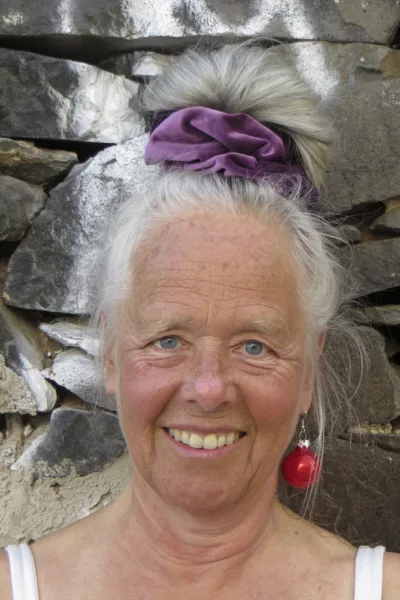 © © Roland Kaiser
© © Roland Kaiser
Many thanks to the participants of the round table on age discrimination and funding, as well as to the Fonds Darstellende Künste for the invitation to rethink funding together and in a needs-oriented way. At the round table of mid-careers and late mid-careers (I wouldn't call any of us a senior yet, but we're on our way!), we had a wonderful opportunity to put our needs and concerns directly and candidly on the table. The debates were very much based on the socio-economic situation of the individuals. Inadequate old-age provision is a core problem, and support systems should also take this into account at an early stage. Courage to rethink is needed – away from the pressure of always new, new, new. Innovation coupled with continuity as well as one’s trademark and work are parameters for sustainability in art. Courage to work with the qualities of age.... Appreciation of long-lasting artistic activity is demanded and should be reflected in funding. Dealing with age also means dealing with long-lasting periods of time in terms of cultural policy – thinking in terms of long funding periods...
Lamin Leroy Gibba | Actress, Author, Film & Theater Maker
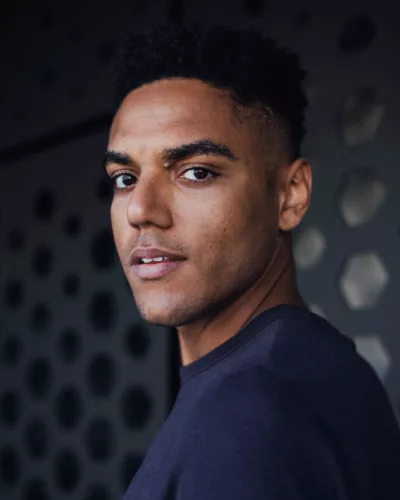 © © Elena Zaucke
© © Elena Zaucke
We are not at the beginning. Here in Germany, people and associations have long worked to ensure that artists who are discriminated against by systems – racism, sexism, ableism, anti-Semitism, cis-and heterosexism, classism, and others – have adequate resources to do their work. It is not rash to demand quotas from government funding agencies that reflect the diversity of our society. Quotas for staff, juries and for the selection of funded projects. Departments of experts should accompany and guide institutions on this path. Inclusion is not a process that can happen by stealth or with caution. The structures that work against it are too strong for that.
Tümay Kılınçel | Choreographer & Performer
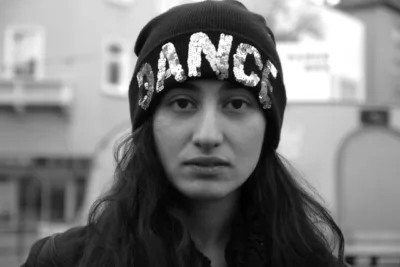 © © Cornelius Schaper
© © Cornelius Schaper
In order to create accessibility in funding structures and make visibility of different perspectives in the cultural world possible, I think a diverse jury with different backgrounds is most important. A (transitional) introduction of quotas would support this. The appearance (website and image) of the Fonds Darstellende Künste seems exclusive and elitist and should be more inviting. Things such as FAQ's remove hurdles. However, a personal conversation is more conducive, so I welcome the telephone advice on applications. This is useful to remove ambiguity and uncertainty, but these possibilities should be more clearly pointed out. Simple wording on the website would also be helpful. In addition, it would be valuable to offer guiding questions and an outline for the application text (project or residency description) that one can use.
Barbara Fuchs | Choreographer, Artistic Director tanzfuchs PRODUKTION
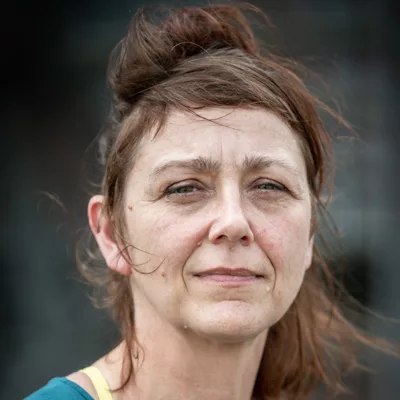 © © Martin Möller
© © Martin Möller
I was very happy about the request to participate in the round table on the topic of aging/ageism, because in my opinion the topic is only coming to light with our generation of older freelance artists. We are the "new old", so to speak. Much of what we discussed at this round table also applies to our younger colleagues, such as demands for longer funding periods, a move away from project logic towards open-ended funding, grants, etc., cover for time spent not working, the introduction of feedback loops between applicants and juries, and simplified application procedures. Much has already improved within artist funding in recent years, but many of us will still end up in poverty in our old age. It was good to exchange ideas with colleagues. It was good to learn that "despite" success in their artistic work, they do not have sufficient retirement provisions. This openness created an entry point to talk about topics such as the introduction of a basic pension for artists, working with "older people" or lifelong learning.
Karolina Dreit | Dramaturg, Sociologist, Cultural Worker
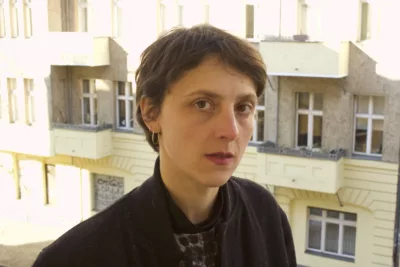 © © Kristin Dreit
© © Kristin Dreit
For me, talking about classism means thinking about the social meaning of class. Is that even possible at the round table of an established institution of cultural promotion, my Marxist superego asked. It was exciting! Especially because the moderator constantly asked us to express our wishes. Paid time to experiment, funded spaces for self-organization were just some of them. And again and again we realized: in relation to class, it is complex and needs to be thought of intersectionally. There is exploitation and unequal opportunity in the arts and culture sector, and not everyone can afford to work precariously. Poverty puts strain the body, and the body is also an asset, especially in the performing arts. We need class struggle! And then there is also the desire for play, development and experimentation, which everyone is entitled to. New aesthetics are also needed! Better access and financed spaces would be a start.
René Reith | Choreographer, Performer & Dance Researcher
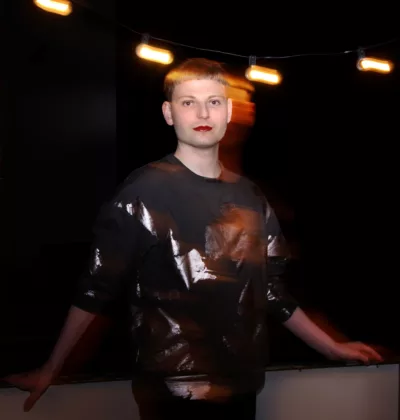 © © Francisco Vogel
© © Francisco Vogel
With the round table "Accessibility // Gender Diversity", the Fonds Darstellende Künste has created an important impulse to look at the complex interconnections between intersectional, queer-feminist discourses and the funding structures. The consultants drew on corporeal knowledge from their own artistic practices, which is a perspective on upcoming changes that should be positively emphasized. In the trusting and critical conversations, the challenge was to balance profound reflection on funding structures with concrete recommendations for further development. Fundamental recommendations are, among others, the diversification and further training of the jury, the dismantling of barriers in the application process, as well as the strengthening of access opportunities for actors whose artistic and queer practices have so far only received marginal visibility. In my eyes, all of this is connected to a fundamental need to raise awareness of queer lifestyles.
Pierre Zinke | Actor, Author, Podcaster & YouTuber
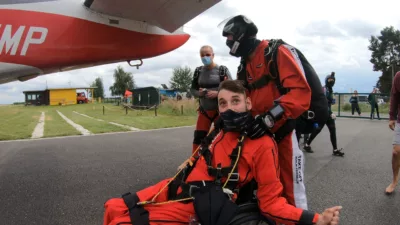 © © privat
© © privat
My name is Pierre Zinke. My wheelchair accompanies me wherever I go, as I have a congenital physical impairment. In all the activities I pursue, the most important thing to me is the idea of inclusion. No one should experience exclusion, because everyone can derive their own personal benefits from an inclusive society. With this approach, I am trying to help shape the world a little bit more colorfully on several inclusive boards. This is most likely a challenge that will not be solved overnight and will take a lot of time. I would like to bring into the round the fact that most people who work in culture and have disabilities can only pursue their artistic activities in free time. This means that when it comes to the accessibility of funding guidelines, access often does not prove to be equally tangible for all, funding is often not there for artists with disabilities due to a lack of professional status, for example. Among other things, I am an actor, an author, podcaster and YouTuber. And I have discovered a passion for tandem skydiving. As far as this goes, I’m a bit crazy. But that shouldn’t exclude me from life.
Clair Howells | Artistic Director Theater Titanick
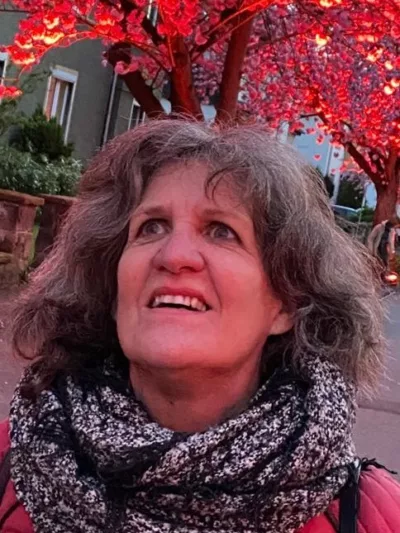 © © privat
© © privat
As artists who have been active for many years, we demand adequate financial security in old age. We would like to continue to work as artists and develop artistic-aesthetic momentum and criteria together as we get older. Artists who have been actively working for more than 20 years should not have to apply for their regular funding every three years, but should be given the option of funding for ten years. The long-term establishment of an unemployment benefit for freelance artists within the KSK is also important. The Fonds Darstellende Künste has offered broad-based funding in the corona era. We welcome that many funding pots ensured support for open-ended work and hope that part of the special cultural funding from the federal government (BKM) can be maintained in the future. The round table discussions were a good first step and extremely inspiring. It was interesting for me to see that other artists are going through similar situations. The next steps will be exciting!
Lisa Deniz Preugschat | Director theaterperipherie, Frankfurt am Main
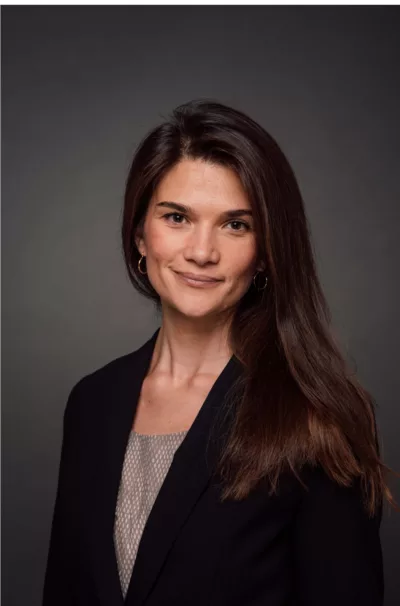 © © privat
© © privat
It was empowering for me during the round table to be encouraged in my criticism of funding structures and to realize that other BIPoC artists have similar fears and experiences of "failure". Furthermore, it was interesting to have grievances and also possible solutions pointed out that I was not aware of before. An important result of our discussions was the demand for a diversification of the juries, so that quality is no longer determined by a white gaze, whose evaluation, lack of understanding and voyeurism BIPoC artists no longer want to expose themselves to. Furthermore, it seemed important to us, especially with regard to the Fonds Darstellende Künste, that not only established artists should be supported, but also that the courage should be mustered to support artists who cannot or do not want to conform to the previous hegemonic logic of production.
Olympia Bukkakis | Drag Queen & Choreographer
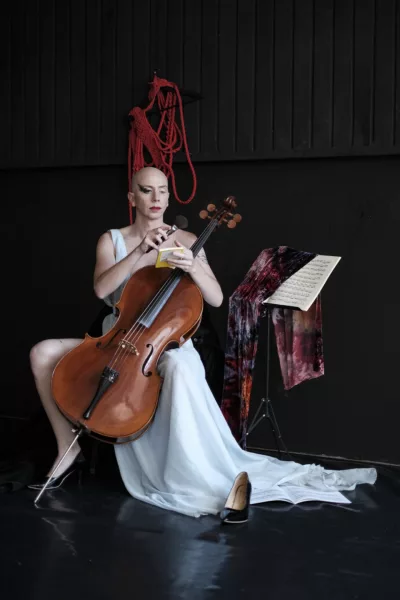 © © Ceren Saner
© © Ceren Saner
Given the prevailing liberal discourse that promotes LGBT perspectives in popular culture and the arts without addressing the material costs of homo- and transphobic oppression, I was excited to speak with other artists about how diversity in the arts could actually be supported. I come from a discipline (drag) in which many queer, trans and nonbinary people begin and develop their art practice without any funding and my perspective was strongly informed by this. We spoke at length about how academic and classist barriers (such as university education and other strict C.V. requirements) disproportionately affect queer and trans artists and how any attempt to include more of this marginalised group must commit to dismantling these barriers and actively supporting working class artists of all sexualities and genders. This would also involve questioning existing standards of ‘quality’ and how these may be informed by discriminatory biases.
Elke Weber | Culture Manager, Company Manager She She Pop
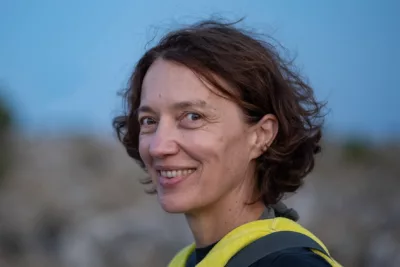 © © privat
© © privat
Self-empowerment, solidarity and the reflection of political conditions were important for the emergence of the free scene and remain important for its continued existence. To find ourselves in an AGEISM group after years of being celebrated as "newcomers" is shocking and celebratory at the same time. Shocking because our pensions make a mockery of our generation's artistic lifetime achievements and the numerous awards and commendations we have received: we will all end up in old-age poverty. Celebratory, because we have managed as individual artists or in groups over 20, 30, 40 years (despite the prevailing project logic in the funding system) to create our own jobs and have therefore not yet disappeared from the stage/picture. Celebratory also because in only 3 rounds of talks we had a fruitful exchange, rich in expertise and for me empowering, about experiences, cultural-political ideas and demands, which resulted in a comprehensive protocol of results. I hope that the Fonds Darstellende Künste will be able to communicate these results and the urgency of some of the demands emphatically to cultural policy makers. Old-age poverty and precarious working conditions for artists on the independent scene are and remain not an individual decision, but the result or failure of politics.
Shlomi Moto Wagner | Performer, Singer, Composer & Writer
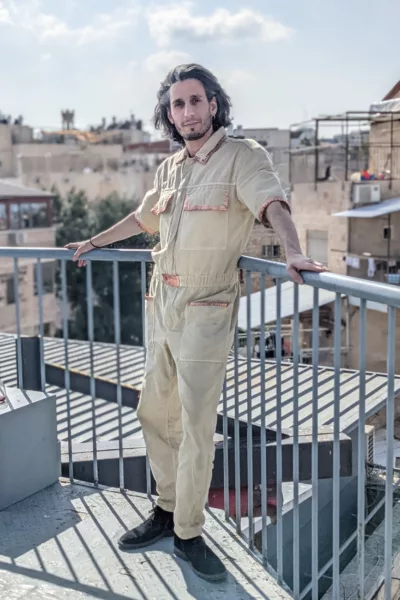 © © Or Kaplan
© © Or Kaplan
It was generally a great pleasure and an empowering experience to meet with fellow theatre-makers to discuss some challenges that I hadn’t had outlet to express on such a level before. It became clear during the meetings that there is an urgency to realize spaces and programs in the free scene, in cooperation with theaters and within the fund itself, to support and take down barriers for easier access for gender and sexually diverse voices. It was important for me to raise the question of the materials we work with in our artistic processes, and the need for more queer texts and theater literature to be available to aspiring and professional theatre-makers and specifically to fund workshops or projects that will produce more texts highlighting such narratives. On a personal note, being an immigrant and a non-native-German speaker, I am thankful to have gotten the opportunity to discuss in a very collegial and safe environment.
Harald Redmer | Actor, Director, Cultural Consultant
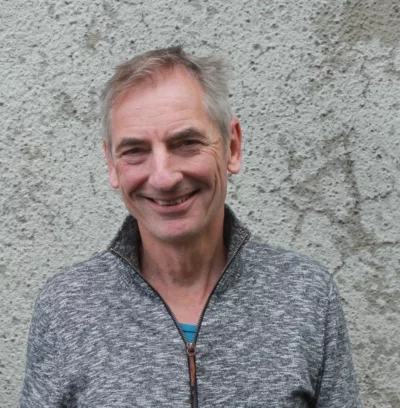 © © privat
© © privat
Still relatively fresh to retirement status, with experience as a freelance artist and as a lobbyist in the thicket of cultural and funding policy, my focus is increasingly on individual artists. I would like to highlight two aspects from our discussions: first, the criticism of a carefully differentiated funding landscape, which nevertheless continues to create working lives that are both socially and conceptually insecure. Those who are 20, 30 or 40 years younger are supposed to "have it better." There is still a lot to be done (KSK issues, retirement provisions as part of project funding, lifetime stipendiums, etc.). The second aspect is aimed at the relationship between the generations. It is about safeguarding and communicating experience and knowledge, about appreciating the lives artists have lived on the independent performing scene. For our generation, being old alone is certainly not enough to establish privileges. A nice, new funding module would, however, be worth a good look by sponsors in order to secure and exchange information on personal lifetime achievements. I look forward to continuing the discussion.
Nadja Dias | Executive Producer Claire Cunningham Projects/Independent Producer
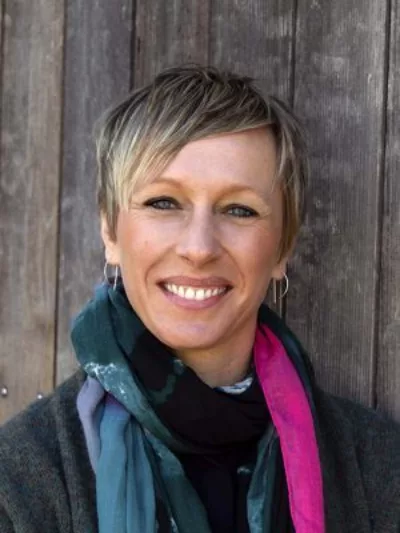 © Miriam Balija
© Miriam Balija
Our group is composed of disabled and non-disabled artists and producers (from the network of non-disabled and disabled dance and theater professionals). Our different perspectives and experiences reflect a working practice in which the lived experience of disability can and should flow as expertise, which for me is an important basis for developing sustainable measures and implementing them in a goal-oriented way. As a group, we have had the opportunity over the past year to help launch initial measures to reduce barriers and increase accessibility. These include easier website navigation, the possibility of having a direct contact person for questions regarding accessibility within the fund, further training and, above all, the option of direct support in the application process for artists with access needs. But for me, very important is the regular exchange and 'awareness/awareness' of existing barriers as an important first step. In my opinion, we don't have to reinvent the wheel, but rather draw on existing experiences, also from other countries – here I would like to refer in particular to the work in the UK by Unlimited and the Arts Council England. Above all, with the involvement and guidance of experts – the artists who have lived experience of disability – we must finally begin to break down barriers together and in a sustainable way.